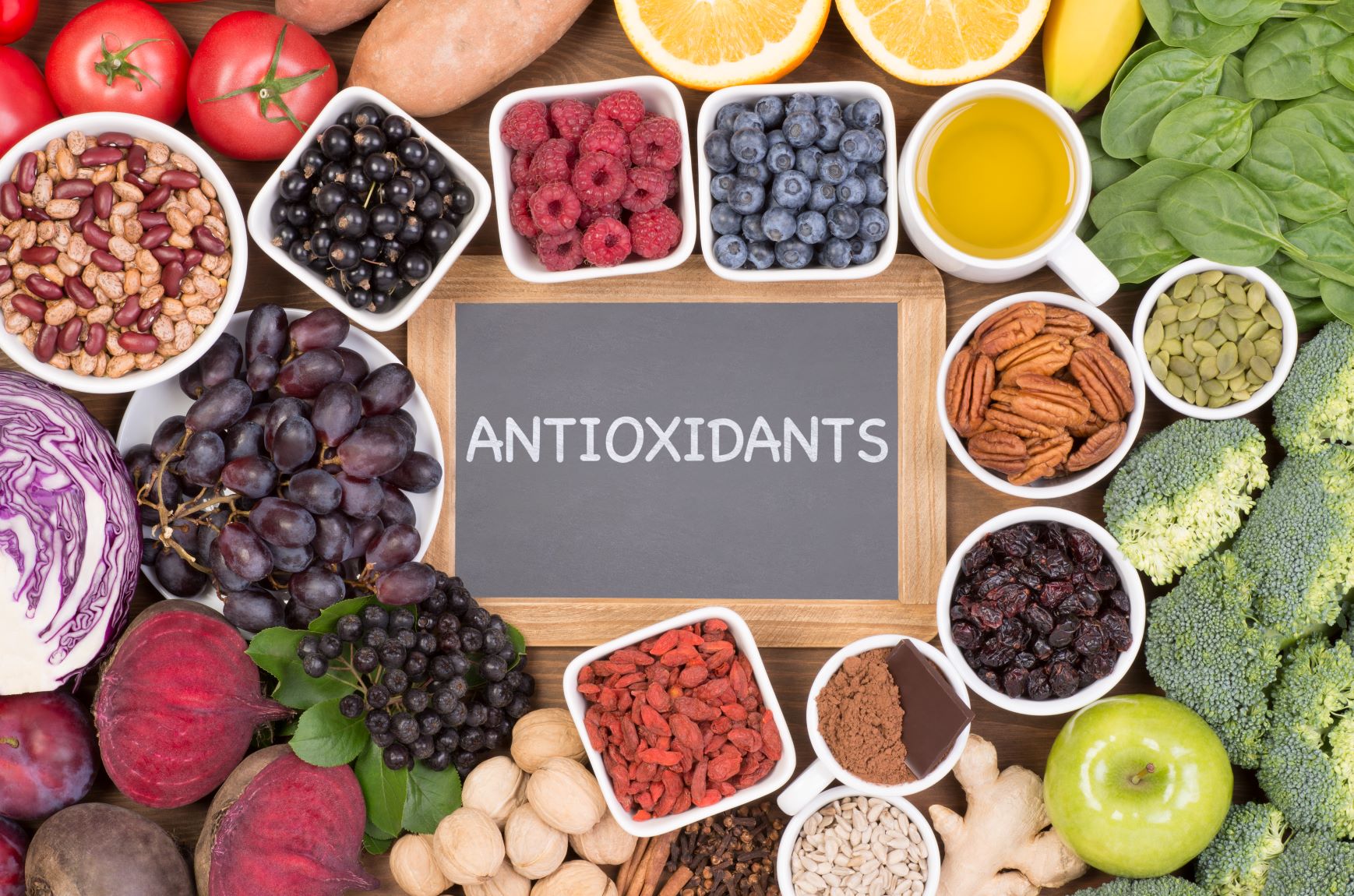Antioxidants: what are they and why are they important?
By Lizzie Streit, MS, RDN, LD
The term “antioxidants” gets a lot of attention in the nutrition world, by doctors and dietitians, supplement companies, and social media influencers alike.
We’re told to eat antioxidant-rich foods, buy the latest powder or pill with these compounds, and even use lotions or skin creams that contain them.
But do you know what antioxidants really are, and what they do for the body? Read on to learn the functions of antioxidants and how you can get them naturally from foods.
What are antioxidants?
An antioxidant is a compound that fights reactive molecules called free radicals that cause oxidative damage to cells and tissues. The most well-known nutrients that act as antioxidants include vitamins A, C, and E, selenium, and the carotenoids beta-carotene, lycopene, lutein, and zeaxanthin.
Free radicals are released as by-products of normal metabolic processes in the body. But some external exposures, such as air pollutants, chemicals, smoking, UV rays, alcohol, pesticides, and fried foods, also facilitate the production of free radicals.
The body uses antioxidants to “scavenge” these compounds and prevent them from doing damage. Specifically, antioxidants donate electrons to neutralize free radicals.
But if the body’s free radical load outweighs its antioxidant defenses, it causes a state of oxidative stress. This can lead to the development of diseases, including some cancers, Alzheimer’s, and heart disease (1).
So, to help prevent the progression of free radical damage, it’s important to provide your body with enough antioxidants.
Foods with Antioxidants
Antioxidants exist naturally in foods but can also be synthetically produced.
In fact, many people may consider taking antioxidant supplements due to the prevalence of chronic diseases associated with oxidative stress. However, studies suggest that high doses of synthetic antioxidants may actually increase the risk of certain cancers and other health issues (2, 3).
Therefore, it’s best to get antioxidants from food sources. You can find vitamins A, C, and E, selenium, beta-carotene, lycopene, lutein, and zeaxanthin in fruits, vegetables, and other plant foods.
Specific antioxidant-rich foods include:
Apples
Artichokes
Beans (kidney, pinto, black)
Beets
Berries (blueberries, strawberries, raspberries)
Broccoli
Cabbage
Carrots
Cherries
Cranberries
Goji berries
Green tea
Kale
Kiwi
Oranges
Plums
Pomegranates (especially pomegranate juice)
Prunes
Radishes
Spinach
Sweet potatoes
Tomatoes
Eating a variety of these foods can help you meet your antioxidant needs.
Antioxidants in Healthy For Life Meals
Our menus are loaded with foods that contain antioxidants, including a variety of fresh fruits and vegetables. Some of our favorite meals that contain these beneficial compounds are:
Breakfast
Traditional Menu: Cranberry Orange Steel Cut Oatmeal, Blueberry Oatmeal Bar and Strawberry Greek Yogurt, Broccoli and 5-Cheese Quiche
Vegetarian Menu: Steel Cut Apple Cinnamon Oatmeal
Lunch
Traditional Menu: Super Greens and Grain Salad, Black Bean, Sweet Potato and Cheese Burrito with Apple
Vegetarian Menu: Vegetable Soup and Spinach Salad, Artichoke and Spinach Stuffed Baked Potato
Dinner
Traditional Menu: Ricotta Stuffed Shells and Spinach Salad; Chicken Broccoli Bake with Harvest Salad
Vegetarian Menu: Sweet Potato Curry, Vegetable Stir Fry with Peanut Sauce
Note from Healthy For Life Meals: You don’t need special powders or pills to meet your antioxidant needs…just fresh food! Get started with one of our healthy meal delivery plans today to receive complete, chef-prepared, fresh meals with antioxidant-rich ingredients. Use discount code TryHFLM and save $10 off your first order.


